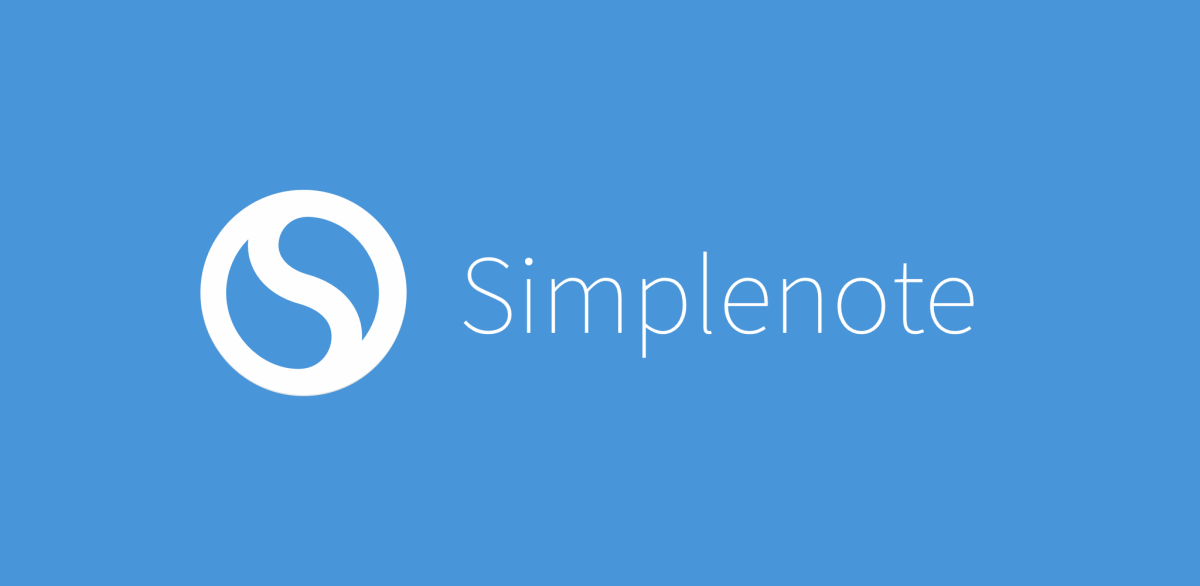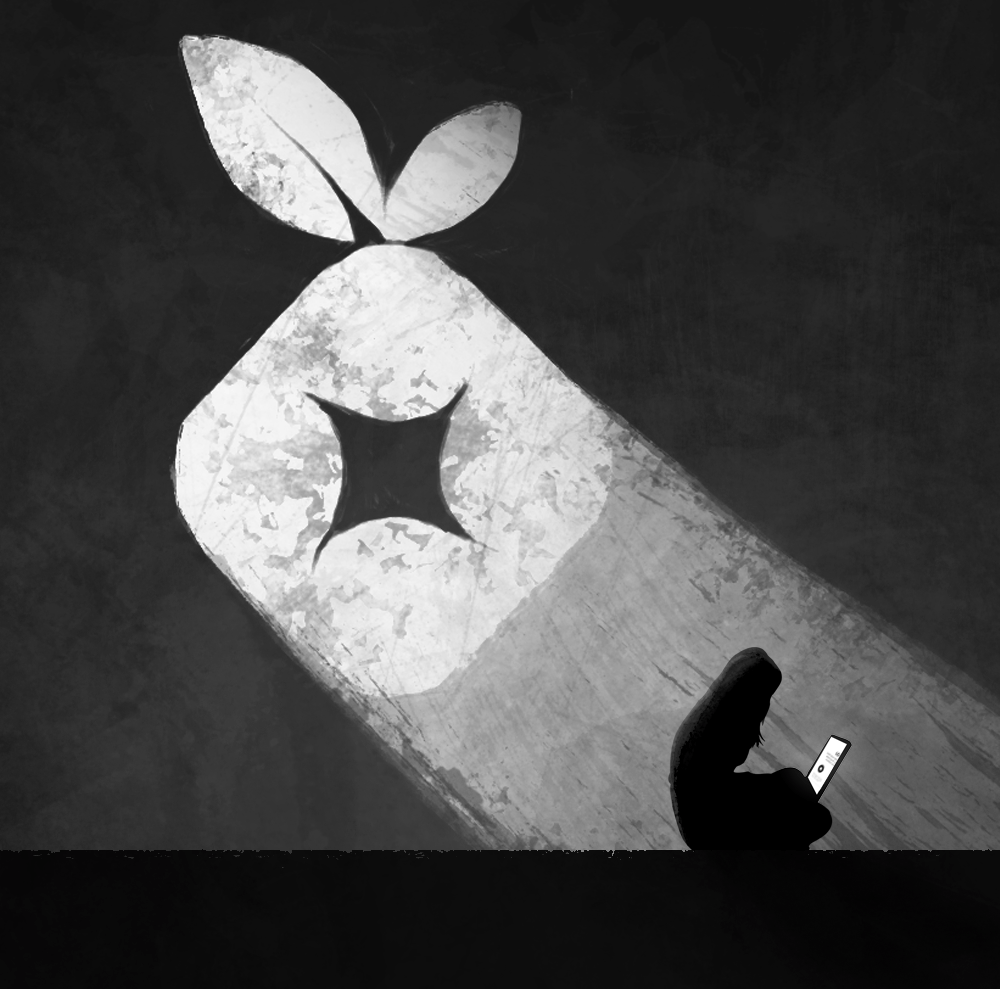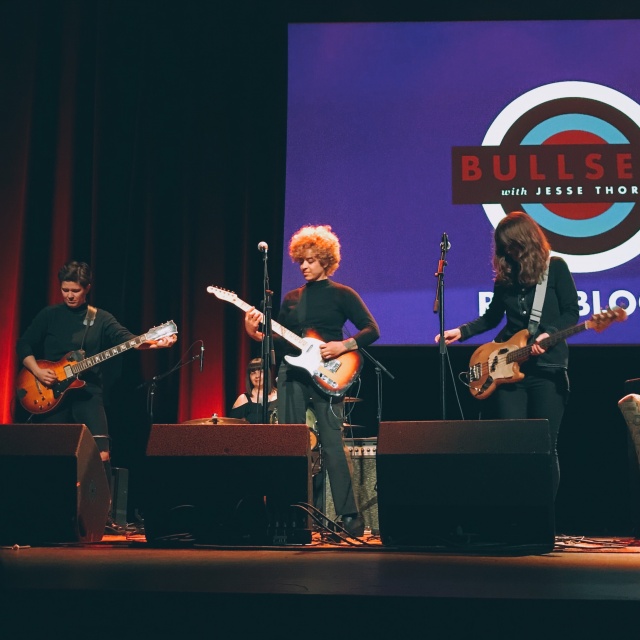The current state of accessibility in web design is not good even though awareness is up and related development tools are becoming more available. Eric Baily does a nice job here of summarizing a recent WebAIM analysis of the top million home pages and putting it in context. One thing I learned is that Firefox added a new accessibility pane for developers: Accessibility Inspector. It's very handy to be able to get color contrast info with a click and I hope the ease of use and ubiquity of tools like this will help developers make more accessible choices.

Simplenote is yet another cross platform note-taking app and I'm ready to say I like this one. For years I've used the Apple Notes app as my primary place for notes but I spend a good chunk of time on Windows these days. The browser-based iCloud version of Notes is fine but their login process is a complicated pain. The time from need-to-take-note to getting logged in at iCloud was too much. To fix that I've tried a bunch of note-taking options like Bear, Notion, Evernote, Google Keep, Microsoft's OneNote and who knows how many others. Simplenote works well with no cruft. It's made by Automattic—the company behind WordPress—so I'm hoping that means they'll be offering this for the forseeable future.
Security update: Nelson let me know that Simplenote does not store notes encrypted on their servers. It does encrypt the notes in transit between your devices and their servers, but that doesn't provide a spectacular level of security. He recommended I take a look at Standard Notes which does store them securely. And be sure to look at Nelson's summary of Standard Notes.
Security update: Nelson let me know that Simplenote does not store notes encrypted on their servers. It does encrypt the notes in transit between your devices and their servers, but that doesn't provide a spectacular level of security. He recommended I take a look at Standard Notes which does store them securely. And be sure to look at Nelson's summary of Standard Notes.
Hello, it's time to revive Newsletter Wednesday where I post about an email newsletter I subscribe to. On Wednesdays. (As the name implies.) I know next to nothing about "business" or "finance" and that's why I love Matt Levine's Money Stuff. Just about every day he describes some aspect of the day's financial news in a way I can understand. Of course you could read all of his articles in the Bloomberg Opinion section. But receiving them in a calm email with no other bits of the page vying for my attention is a superior experience. To get a feel for it, here's his latest: Who Can Say What California Means? Ha! He also recently described Slack's unorthodox IPO which I found helpful: Bankers Can't Feel Great Helping Slack Go Public.

If you're like me you've spent way too much time talking about the true randomness of dice with gaming friends. The conversation always turns to automating dice rolls via robotics, cameras, computer vision, compiling results, and haha yeah, that'd be great. The talk is always theory because it would require serious dedication to actually pull it off. Well someone did it and it is as glorious as I thought it would be. How fair are D&D dice? Not very fair, it seems, but the real destination here is the journey.

I have to link to this excellent reporting by Casey Newton. This is an important article that shows the human cost of maintaining large centralized social networks. I think it also reveals a sick society where people are constantly uploading psychologically scarring material that other people then have to sift through. I felt like Facebook's response was weak—at some point the we're growing too fast to keep up and we're so new at this doesn't work. As Bloomberg points out, companies have always said artificial intelligence is just around the corner to save the day. I think that's why companies view human moderators as a failure of technology rather than a key piece of their success. Matt Haughey ran an indie corner of the open internet for years and knows Content moderation has no easy answers. Just because it's hard doesn't mean we shouldn't hold Facebook accountable. They made decisions that created this problem and it's a shameful aspect of the internet we need to fix.
This program is an audio equalizer for Windows. Well, it's a graphic interface for the text-only Equalizer APO which sounds complicated, but you need to install both programs to get a nice, familiar slider EQ:

Ok, so it looks a bit like a 90s Visual Basic version of a familiar slider EQ, but it works. If you spend any time on Windows it's a nice addition because Windows inexplicably doesn't have a native equalizer and neither does Spotify where I spend most of my listening time. Being able to boost the bass and treble and drop the mids is one of those things I could live without, but now that I have the ability everything sounds better.

Ok, so it looks a bit like a 90s Visual Basic version of a familiar slider EQ, but it works. If you spend any time on Windows it's a nice addition because Windows inexplicably doesn't have a native equalizer and neither does Spotify where I spend most of my listening time. Being able to boost the bass and treble and drop the mids is one of those things I could live without, but now that I have the ability everything sounds better.
Sackett
????

I'm a big fan of goofing around with a Raspberry Pi. At times I've used mine as a game emulator, media center, and caller ID server. Recently it has been sitting in a box, but now it's a DNS server that blocks ads on my home network thanks to Pi-hole. Pi-hole is software you install on a raspberry pi that filters the addresses you or your devices request through shared lists of known advertisers. It's simple to set up and it just works. I'm seeing 98% fewer ads across the web—no browser ad-blocker required. Once installed it has a nice web admin interface and it gives you statistics about which domains have been blocked. (8.7% of all my DNS queries have been blocked as I write this.) It was also easy to add my favorite ad-supported sites to a whitelist so they'll still get paid. It does bother me that this kind of tool leads to a nerds vs. everyone else experience (great interview, btw) but tracking, malware, and general browsing performance has gotten so bad due to ads that we need these tools. If you already have a tiny computer, Pi-hole plus an hour to set it up on a weekend will improve your web experience.

Welcome to a very special edition of Podcast Saturday. In the focuslight today is Jesse Thorn's flagship pop culture podcast on his Maximum Fun network. Yesterday Jesse traveled from his southern California home to the wilds of Portland, Oregon to entertain us with a live recording of Bullseye. I've been a fan since Jesse's show was The Sound of Young America and it was a treat to see his rapport with guests in person. Jesse has a great way of teasing the humor and emotional highlights out of someone's story during his interviews. Much like my desert island favorite Judge John Hodgman, the podcast isn't just about the surface content. The content here is meeting artists and hearing about their creative process. Its hidden message is about being a decent, curious, earnest person which makes it a subversive podcast indeed.
I also really like this video series (?) Jesse is working on called I Work Here that features artists giving tours of their workspaces. Last night he showed: I Work Here: Inside the Work Space of 'Wondermark' Creator David Malki!
Update: Forgot to link to this great interview in Willamette Week: Bullseye’s Jesse Thorn on the Early Days of Podcasting...
I also really like this video series (?) Jesse is working on called I Work Here that features artists giving tours of their workspaces. Last night he showed: I Work Here: Inside the Work Space of 'Wondermark' Creator David Malki!
Update: Forgot to link to this great interview in Willamette Week: Bullseye’s Jesse Thorn on the Early Days of Podcasting...
Roseblood
Josh made a beautiful thing and shared the process. This is inspiring to read, and if you haven't seen Josh's geometric paintings you should take a look. Also fun seeing discussion of this pop up on Hacker News and MetaFilter (of course).


